Android x86 with ARM emulator on the big screen
Good day.
Under the cut, I'll tell you how I managed to run Android on an eeePC and connect a large TV to it.
Given:
Old laptop with WiFi (Ethernet will not work)
Large monitor or TV
Task:
Install Android on a laptop, connect the TV to the laptop as an external monitor.
Install the ARM emulator to run games with native code.
Installing Android on a laptop
')
1. Download the ISO image of Android-x86-4.0-RC2 for your laptop with android-x86.org/download . Be sure to put RC2 if we continue to install the ARM emulator.
2. Burn the ISO to disk or flash drive using unetbootin Boot from external media and install Android on the laptop.
3. Be sure to install GRUB and the system directory in read / write mode.
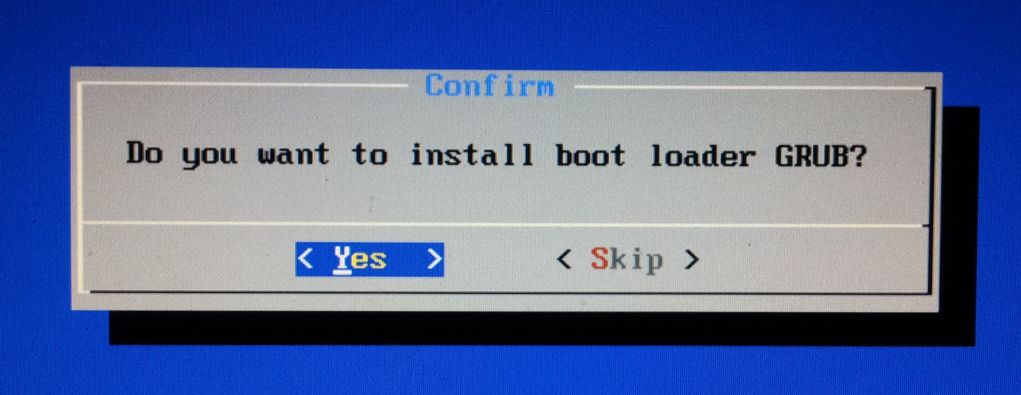
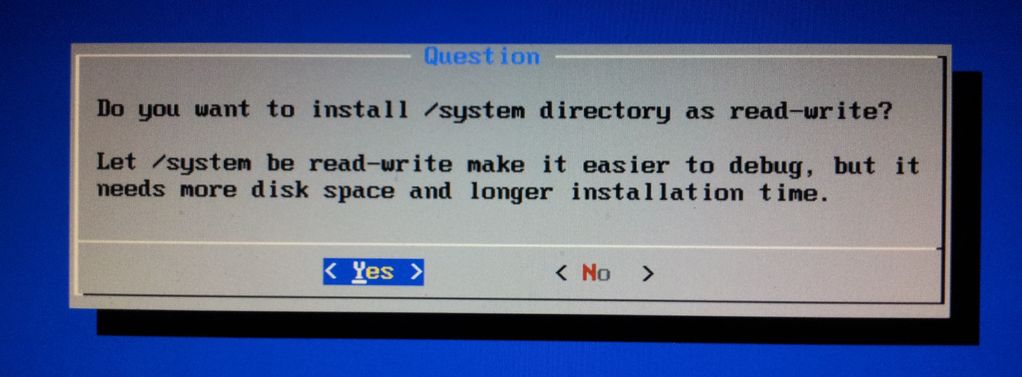
So we got a laptop with Android on board. But many programs do not work. You need to install the ARM emulator and a lot of programs will work.
Installing the ARM emulator
1. Downloading the library for the emulator: libhoudini.so , libvdm_houdini.so , houdini_armlibs.tgz
Or all in one archive.
2. We transfer libraries to the laptop. The easiest way is to immediately download the library directly to your laptop. Downloaded files can be found in the / sdcard / Download folder. You can send files to yourself by letter and open the letter on the laptop.
3. You need to unzip houdini_armlibs.tgz to the arm folder and copy the files libhoudini.so, libvdm_houdini.so and the arm folder to / system / lib.
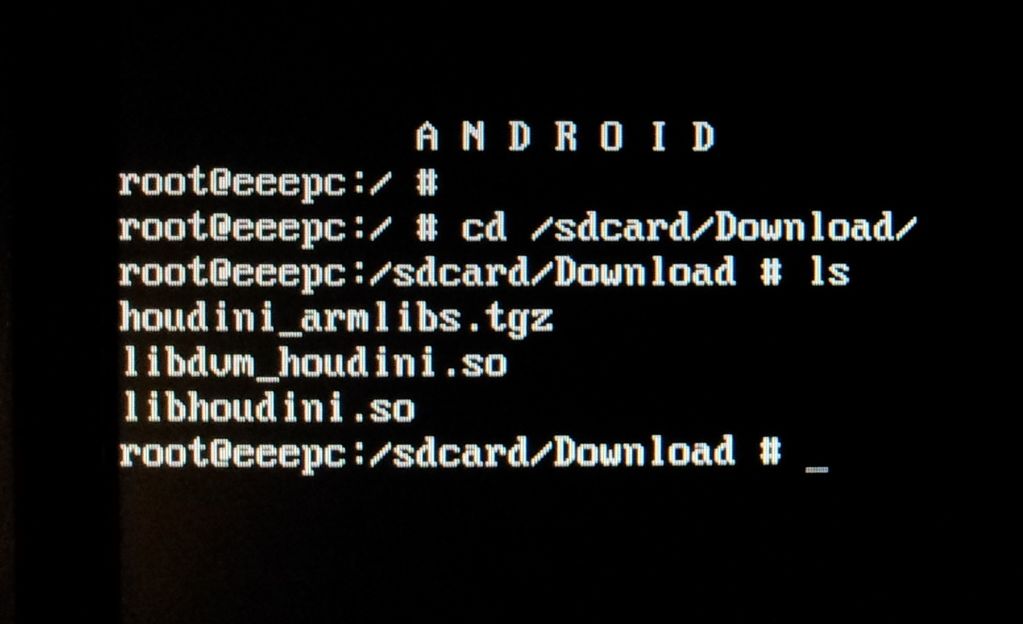
To do this, go to the console (Alt + F1) and execute the following commands.
cd / sdcard / Download
mkdir arm
mv houdini_armlibs.tgz arm /
cd arm
tar –xzf houdini_armlibs.tgz.
rm houdini_armlibs.tgz
cd ...
cp lib * / system / lib /
cp –r arm / system / lib /
reboot
After the reboot, many applications that have fallen before will work.
Connect a large monitor
If you just take and connect an external monitor to a laptop, then you will find that Android does not display graphics on it.
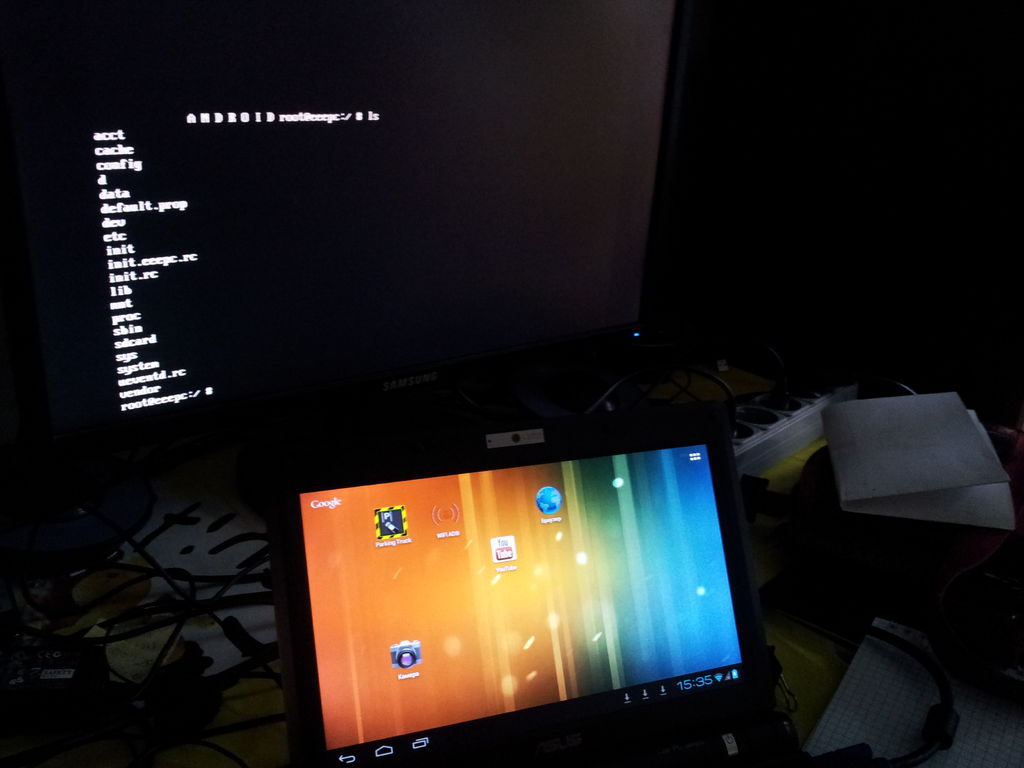
You need to add a few parameters to the kernel boot. It is best to create a separate menu item in GRUB for downloading with an external monitor.
1. Overload the laptop and boot into Debug mode.
2. Open the file /mnt/grub/menu.lst for editing
vi /mnt/grub/menu.lst
3. Switch to edit mode by pressing “I”. Copy the first menu item and add such parameters to the kernel boot.
video = LVDS-1: d video = 800x600 UVESA_MODE = 800x600 DPI = 240
4. As a result, we obtain such a file.
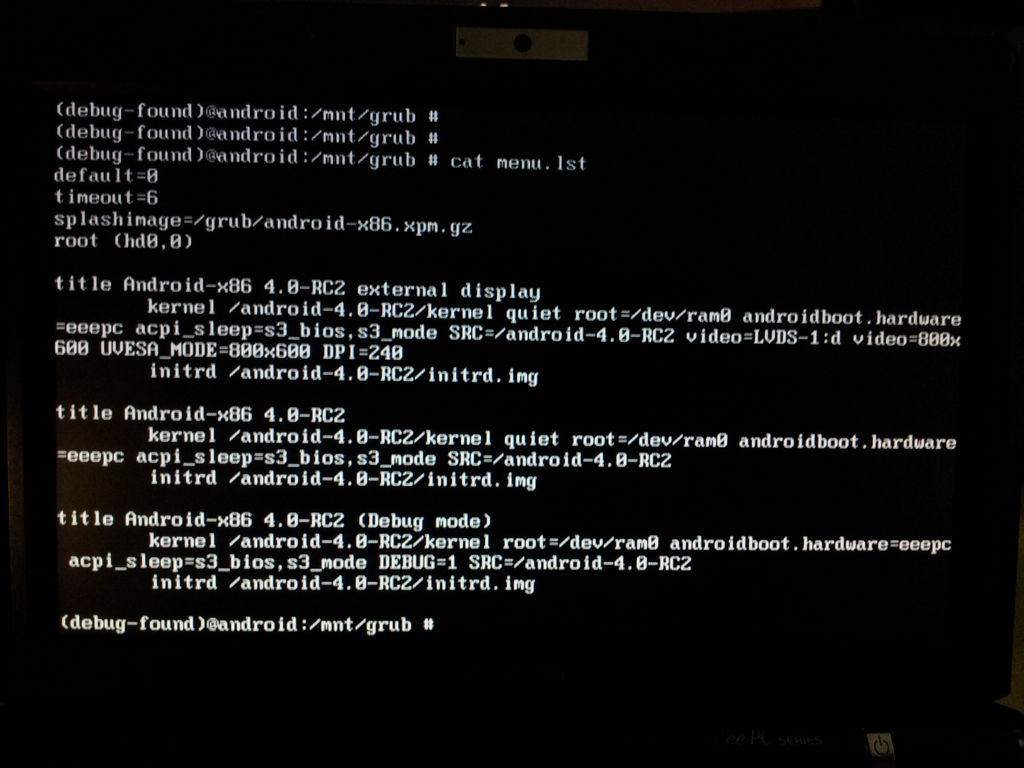
5. We remain. Esk. Shift +: Type x and then Enter.
6. Overload.
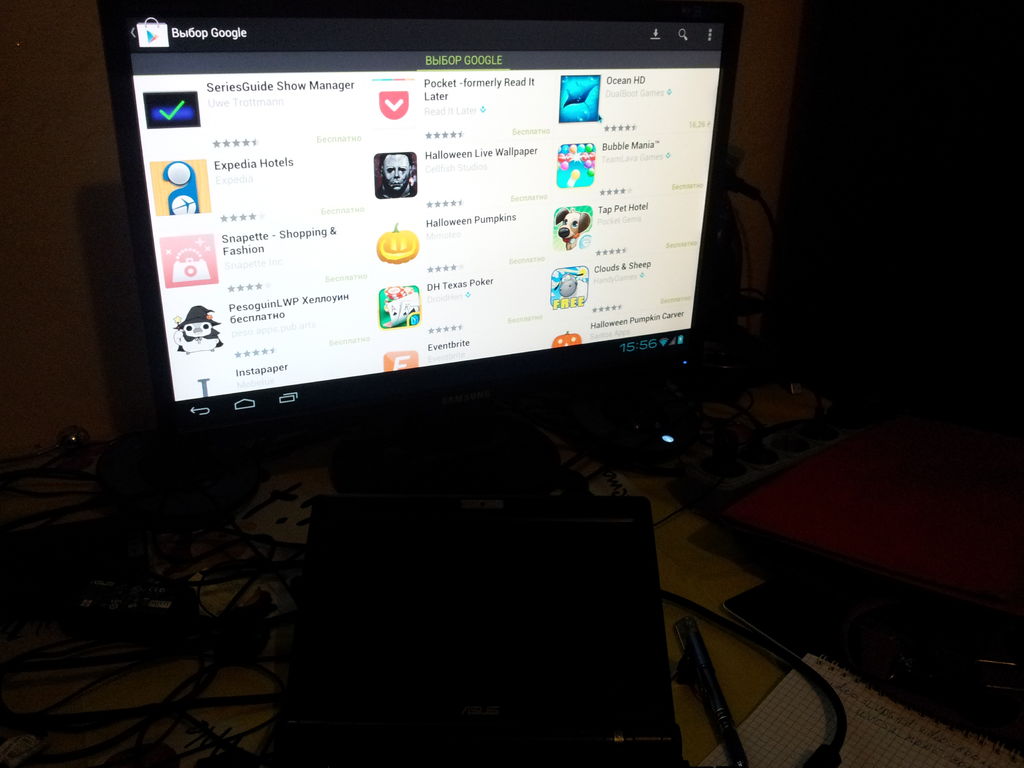
As a result, got the opportunity to boot and work with an external monitor.
We connect the wireless keyboard and the system is ready.
Update. The parameter DPI = 240 allowed to remove the brakes when playing video from youtube.
Under the cut, I'll tell you how I managed to run Android on an eeePC and connect a large TV to it.
Given:
Old laptop with WiFi (Ethernet will not work)
Large monitor or TV
Task:
Install Android on a laptop, connect the TV to the laptop as an external monitor.
Install the ARM emulator to run games with native code.
Installing Android on a laptop
')
1. Download the ISO image of Android-x86-4.0-RC2 for your laptop with android-x86.org/download . Be sure to put RC2 if we continue to install the ARM emulator.
2. Burn the ISO to disk or flash drive using unetbootin Boot from external media and install Android on the laptop.
3. Be sure to install GRUB and the system directory in read / write mode.


So we got a laptop with Android on board. But many programs do not work. You need to install the ARM emulator and a lot of programs will work.
Installing the ARM emulator
1. Downloading the library for the emulator: libhoudini.so , libvdm_houdini.so , houdini_armlibs.tgz
Or all in one archive.
2. We transfer libraries to the laptop. The easiest way is to immediately download the library directly to your laptop. Downloaded files can be found in the / sdcard / Download folder. You can send files to yourself by letter and open the letter on the laptop.
3. You need to unzip houdini_armlibs.tgz to the arm folder and copy the files libhoudini.so, libvdm_houdini.so and the arm folder to / system / lib.

To do this, go to the console (Alt + F1) and execute the following commands.
cd / sdcard / Download
mkdir arm
mv houdini_armlibs.tgz arm /
cd arm
tar –xzf houdini_armlibs.tgz.
rm houdini_armlibs.tgz
cd ...
cp lib * / system / lib /
cp –r arm / system / lib /
reboot
After the reboot, many applications that have fallen before will work.
Connect a large monitor
If you just take and connect an external monitor to a laptop, then you will find that Android does not display graphics on it.

You need to add a few parameters to the kernel boot. It is best to create a separate menu item in GRUB for downloading with an external monitor.
1. Overload the laptop and boot into Debug mode.
2. Open the file /mnt/grub/menu.lst for editing
vi /mnt/grub/menu.lst
3. Switch to edit mode by pressing “I”. Copy the first menu item and add such parameters to the kernel boot.
video = LVDS-1: d video = 800x600 UVESA_MODE = 800x600 DPI = 240
4. As a result, we obtain such a file.

5. We remain. Esk. Shift +: Type x and then Enter.
6. Overload.

As a result, got the opportunity to boot and work with an external monitor.
We connect the wireless keyboard and the system is ready.
Update. The parameter DPI = 240 allowed to remove the brakes when playing video from youtube.
Source: https://habr.com/ru/post/156415/
All Articles